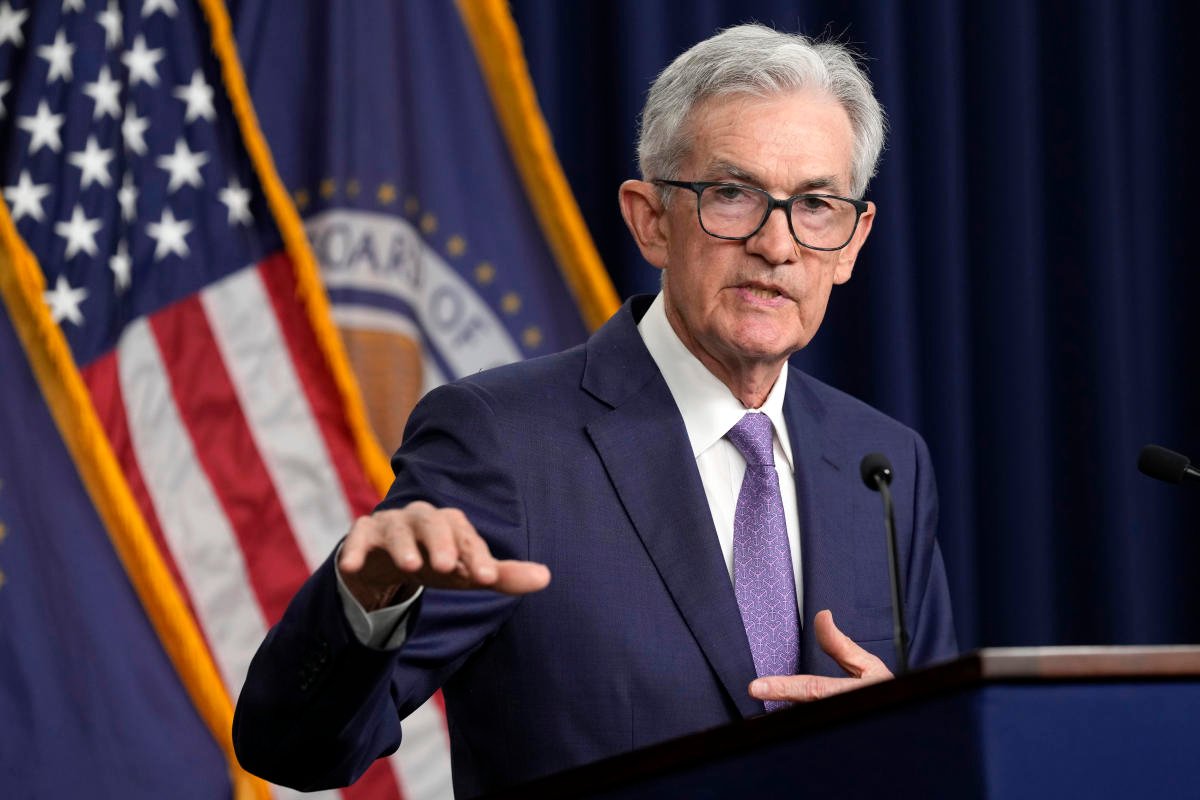Federal Reserve Chair Jerome Powell said Tuesday that he is encouraged by cooler inflation but reinforced that the central bank will need to see more evidence before cutting interest rates.
The last two inflation readings in April and May “do suggest that we are getting back on a disinflationary path,” Powell said while speaking on a panel in Portugal for a European Central Bank conference.
Powell’s comments come days after the latest reading of the Fed’s preferred inflation gauge — the “core” Personal Consumption Expenditures (PCE) index — rose 2.6% in May, in line with expectations and down from 2.8% in April.
That marked the slowest annual gain in more than three years.
On a month-over-month basis, the inflation measure rose 0.1%, also in line with expectations and down from 0.2% in April.
The reading offered new support for rate cuts later this year, easing concerns that mounted during the first quarter that hotter-than-expected inflation could upend plans for a loosening of monetary policy in 2024.
Despite another positive signal that inflation is easing, the central bank isn’t likely to cut rates at its next meeting in late July.
Read more: What the Fed rate decision means for bank accounts, CDs, loans, and credit cards
Powell declined to answer a question about whether the Fed could cut as soon as September.
Instead, he underscored the Fed will need more time and evidence that inflation is moving sustainably down to its 2% target, noting that the central bank can afford to be patient given a strong job market that is cooling gradually.
“We’ve made a lot of progress,” said Powell. “We just want to understand that the levels that we’re seeing are a true reading on what is actually happening with underlying inflation.”
The Fed raised its outlook for inflation at its last policy meeting earlier this month to 2.8% from 2.6% previously and trimmed its projection to one rate cut this year from three.
Powell on Tuesday also declined to discuss what the policies of Republican presidential candidate Donald Trump might mean for monetary policy.
He emphasized that the Fed would continue to try to stay out of politics. However, he did note that there is “very broad support” for an independent central bank from both political parties.
“I don’t think that is really in question.”
Powell, when asked about the biggest risk facing the US economy, said he worries about a cyberattack on a big bank or sizable market player.
But he said he also thinks a lot about getting monetary policy right.
“That’s really what I think about in the wee hours.”
Click here for in-depth analysis of the latest stock market news and events moving stock prices
Read the latest financial and business news from Yahoo Finance




